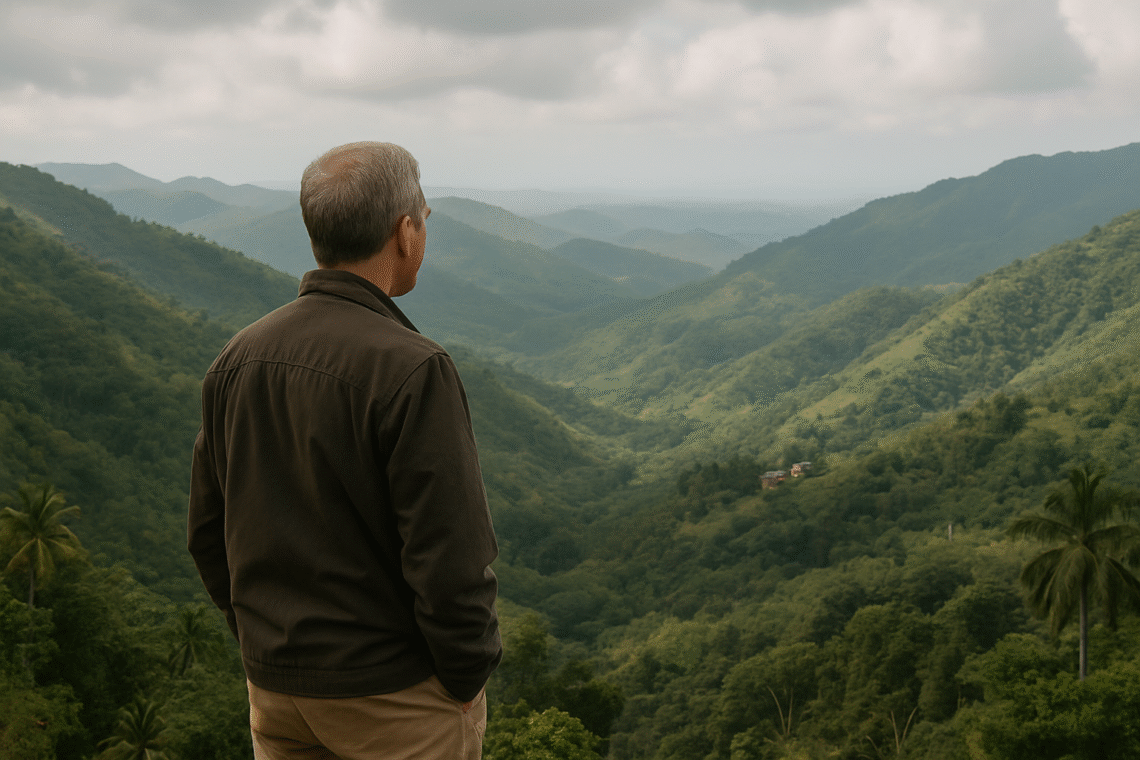It is a curious thing, is it not, how much comfort we derive from the notion of “place.” Not just any place, mind you, but our place, a small patch of earth or idea upon which we can stand and say, with some confidence, “Yes, this is where I am meant to be.” For some, that place is literal, a beloved city with its familiar rhythms and recurring buskers; for others, it is abstract, a settled conviction, a personal philosophy, or even the sturdy allegiance to a football club that loses more often than it wins. But always, it seems, we are seeking the psychic coordinates of belonging.
I first encountered this deep sense of connection when I met a gentleman from China with whom I would work for a summer. As we got to know each other I noted that he would always say “in our place” when referring to his hometown of Szechuan, China. I realized that I would often say, I’m from Jamaica, or I live in Jamaica or most affectionately I live on the Rock, Jamaica. Now there is nothing scientific about this observation except I realized that how we speak about the physical space we occupy or from which we hail, is significant in communicating our sense of identity.
Now, one must be careful here not to romanticise geography. Not every village is quaint, and not every city is forgiving. Yet we cannot escape the fact that certain places become charged with meaning. They are no longer mere locations; they are locales, narrative-laden, memory-saturated, spiritually resonant. I have lived with the privilege of traveling in various places. Some have moved me spiritually, others have continued to call me back many years after my visit. And yet there is no joy more profound that returning home and felt the quiet reassurance of being back inside my own skin.
But place is not just about comfort, it is also about becoming. The Greeks, were ahead of us here. They believed that character was shaped by topos, the nature of one’s terrain, climate, customs. And indeed, what better mirror for the inner self than the places we choose to inhabit or the places that mysteriously choose us? To belong somewhere is not to possess the place, but to be, in some small and reciprocal way, possessed by it.
Which brings me, perhaps oddly, to sport. I once knew a man, quiet fellow, accountant by trade, who transformed entirely on weekends. He would don the red and white of Arsenal, paint his face (a regrettable decision, frankly), and bellow chants in the company of strangers as if he were at the gates of Troy. I used to tease him, but truth be told, I admired his commitment. For in that stadium, he was not merely a spectator. He had, quite evidently, found his place. Not because Arsenal was always victorious (heaven knows they weren’t), but because it gave him a ritual, a rhythm, a communal heartbeat. The stadium was his chapel; the match, his liturgy.
Place, then, need not be grand or permanent. It can be found in a bookshop one returns to like a pilgrim, (a wink to my wife). Or a bench by the river where one thinks clearly. Or a guiding set of principles that, while invisible, offer the same grounding as any plot of soil. What matters is not the scale or prestige of the place, but its ability to hold us, anchor us, remind us who we are.
And I dare say that in an age as rootless as ours, when people drift through cities and identities like so many news headlines, the act of claiming a place is a quiet form of rebellion. To say “This is my town,” or “These are my people,” or even “This is my truth,” is to declare oneself placed, not merely wandering. It is to opt into meaning, to belong not just to the world, but to a part of it.
So let us be bold in our rooting. Let us search for the cities, the convictions, the companions that make us feel at home. And if we should find ourselves, unlikely as it seems, waving a flag in the freezing rain for a team that hasn’t won in decades, well, perhaps that too is sacred.
For in finding our place, we find, I suspect, our peace.





